Facing a grim future
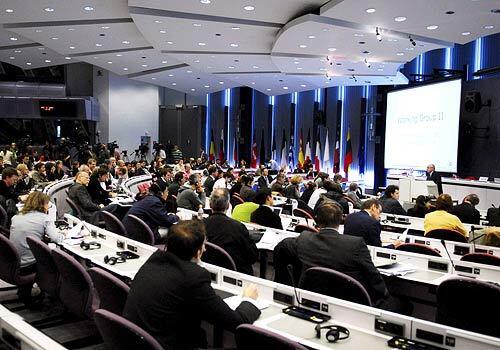
More than 2,500 scientists presented a near-apocalypic vision of Earth’s future in a report issued by the United Nation’s Intergovernmental Panel on Climate Change in Brussels, Belgium. (Eric Vidal/EPA)

Chairman Rajendra Pachauri of the Intergovernmental Panel on Climate Change is pictured after the news conference announcing the grim results of the “Climate Change 2007 Assessment Report” in Brussels, Belgium. (Eric Vidal / EPA)
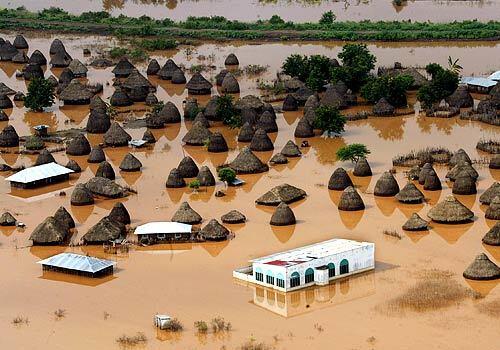
An aerial photo taken in December 2006 depicts a submerged village in Gaarsen, Tana River district southwest of Nairobi, Kenya. U.N. experts released a report today predicting that greenhouse gases would change rainfall patterns, intensify tropical storms, accelerate the melting of Arctic ice and mountain glaciers, amplify the risk of drought, flooding and water stress and would have a far-reaching impact on habitat and wildlife. Scientists estimate that as many as 30% of animal and plant species will be vulnerable to extinction if global temperatures rise by 2.7 to 4.5 degrees Farenheit. (Tony Karumba AFP/Getty Images)
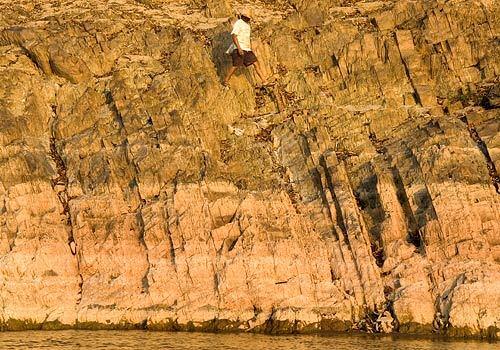
A man straddles the banks of the Mekong River in Thailand where visible marks of the past water level can be seen. (Vinai Dithajohn Greenpeace/EPA)
Advertisement
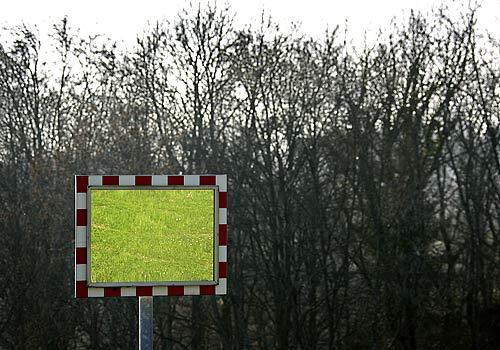
A traffic mirror displaying a field is seen with a forest as background near Lausanne, Switzerland. Climate change is set to inflict damage in every continent, hitting poor countries hardest and threatening nearly one-third of the world’s species with extinction, U.N. experts warned today. (Fabrice Coffrin AFP/Getty Images)
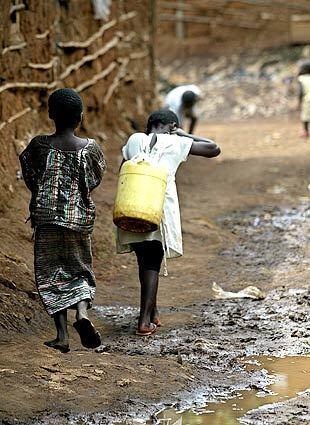
A girl carries water on her back in the shantytown of Kibera, the largest shantytown in Africa on the outskirts of Nairobi, Kenya. (Simon Maina AFP/Getty Images)
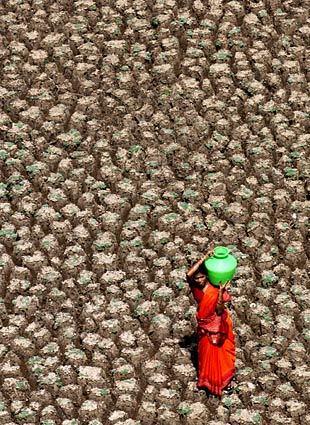
An Indian woman carries drinking water across the dried-up Osman Sagar lake on the outskirts of Hyderabad, the capital of the southern Indian state of Andhra Pradesh. (Indranil Mukherjee AFP/Getty Images)
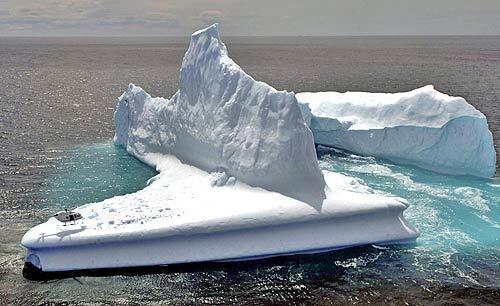
One glacier scientists have studied for decades is retreating by about 600 feet a year. In many places, as ice disappears, so do future water supplies. Greenhouse gases are predicted to contribute to this scenario. Here, a helicopter lands on the northernmost iceberg off Dunedin. (Stephen Jaquiery AFP/Getty Images)







